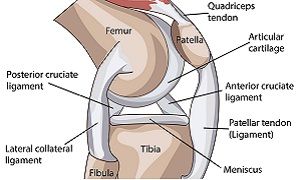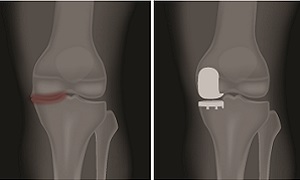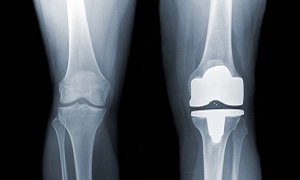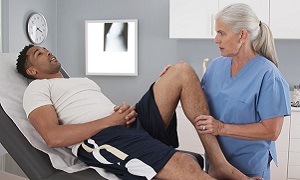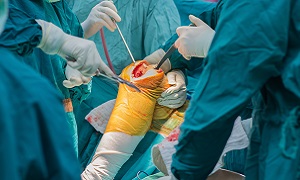Best Orthopaedic Surgeons in India for Knee Replacement Procedure
Best Knee Replacement Hospitals in India
- City: Bengaluru, India
Hospital Highlights:
- Fortis Hospital Bannerghatta, Bengaluru was established in 2006.
- The hospital is a 276 bedded multi-specialty tertiary care facility.
- The hospital specializes in cutting-edge medical technology and dedicated patient care services.
- The hospital is equipped with state-of-the-art technologies like trans-radial angioplasty, trans-abdominal cardiac surgery, and computerized TKR navigation surgery.
- The hospital provides specialty medical services in cardiology, cardiac surgery, orthopedics, neurology, neuro-surgery, GI, and Minimal Access Surgery (MAS).
- City: Chennai, India
Hospital Highlights:
- Fortis Malar was established in 1992 and was formerly known as Malar Hospital.
- The hospital specializes in cutting-edge medical technology and dedicated patient care services.
- The hospital is multi-specialty, tertiary care facility with 180 beds.
- The hospital offers comprehensive medical care in specialties such as cardiology, cardio-thoracic surgery, neurology, neurosurgery, orthopedics, nephrology, gynecology, gastroenterology, urology, pediatrics, and diabetes.
- City: New Delhi, India
Hospital Highlights:
- Established in 1996, Pushpawati Singhania Research Institute is one of the top hospitals in the NCR region, as well as one of the top facilities in India for gastroenterology. The hospital is one of South Asia’s first institutes in medical and surgical treatment for diseases related to digestion.
- The hospital is equipped with state-of-the art facilities coupled with the latest equipment as well as renowned consultants from various parts of India as well as other parts of the world.
- City: New Delhi, India
Hospital Highlights:
- State-of-the-art technology and devoted healthcare professionals have been brought together under one roof at Venkateshwar Hospital to provide genuine medical care. The hospital’s professionals work together as a team to deliver the best possible treatment to their patients, using the most sophisticated equipment and information technology.
- Venkateshwar Hospital’s mission is to attain global excellence in healthcare by employing evidence-based, ethical clinical practices and cutting-edge technology by a team of highly skilled experts.
- City: New Delhi, India
Hospital Highlights:
- Sir Ganga Ram Hospital, New Delhi is known to provide the latest medical procedures with the latest technology in all of its units.
- The hospital has a team of reputed doctors, nurses, and healthcare professionals that ensure that patients receive quality care at affordable costs.
- Staffed with a team of highly qualified doctors, dedicated nurses, and paramedical and non-medical staff, the hospital aims to lead in healthcare delivery, medical education, training, and research.
- As per the vision of the founder, the hospital also provides free treatment to the economically weaker sections of society.
- Sir Ganga Ram Hospital also provides training to young doctors under the Diplomate in National Board(DNB) program. The DNB program at the hospital was started in 1984 and it is known for currently running the maximum number of DNB specialties in the country. It also has the distinction of having the first bone bank in India.
- City: Kerala, India
Hospital Highlights:
- Established in 2019, Apollo Adlux Hospital is the first Apollo Hospital in Kerala and the 73rd hospital owned by Apollo Group in India. With the state’s most advanced, comprehensive healthcare infrastructure and cutting-edge technologies, Apollo Adlux Hospital stands as an example of medical excellence in Kerala.
- With over 34 multi-specialty departments, the hospital believes in providing the best quality treatment to its patients at affordable rates, ensuring comfort at their difficult times.
- The 300-bed hospital is managed by a team of highly qualified and experienced experts who delivers exceptional hospitality to their patients and treats them with great compassion.
- With its affiliation with the Apollo Hospitals Group, the hospital aims in providing patients with top-notch healthcare services while also serving communities in Kerala.
- The hospital has good railway and road connections, and is conveniently close to Cochin International Airport.
- City: Gurugram, India
Hospital Highlights:
- Situated near DLF Cyber City, Gurugram, Narayana Superspecialty Hospital is one of the top medical facilities in the Delhi NCR region, catering to the needs of the people. Known for its commitment to quality medical care and patient service, the hospital is a state-of-the-art facility with planned and well-equipped sections, which includes a spacious OPD area as well as comfortable patient rooms.
- It is the closest super-specialty hospital from Indira Gandhi International Airport towards Gurugram, and also the nearest super specialty hospital from DLF Cyber City. It is also close to major residential areas in Gurugram.
- It is part of the renowned Narayana Health Group. Established in 2000, by Dr. Devi Shetty, a renowned cardiac surgeon, it has grown to be one fo India’s leading healthcare groups.
- City: Noida, India
Hospital Highlights:
- Fortis Hospital, Noida, stands as one of the oldest and most trusted healthcare institutions in the region, setting a benchmark for comprehensive medical care.
- As the second mega hub hospital in the Fortis Healthcare Group, Fortis Hospital, Noida, upholds a legacy of trust among more than 1.2 million patients. By integrating top-tier professionals with cutting-edge technology, the hospital delivers superior treatment across various medical disciplines.
- Specializing in advanced Neurosciences, Orthopedics, Kidney and Liver Transplant Programmes, Fortis Hospital, Noida has successfully performed over 1,500 transplants, solidifying its reputation as a leader in specialized medical interventions.
Knee Replacement
Knee Replacement is a surgical procedure used to treat arthritis that causes pain and limits the movement of the knee joint.
In Knee Replacement, the diseased or damaged joint is replaced by an artificial joint or prosthesis. The choice of prosthesis depends upon the age, weight, level of activity and overall health of the patient.
About Knee Joint
Knee joint is a hinge and synovial joint where the upper and lower leg meets. It allows to sit, stand, walk or squat.
The knee joint comprises of Femur (thigh bone), Tibia (shin bone) and Patella (Knee cap).The tibia and femur and the back of patella are covered with the articular cartilage.
The ligaments of Knee joint are:
- Medial Collateral Ligament- connects the medial side of tibia to medial side of femur (hip bone).
- Lateral Collateral Ligament- connects the lateral side of tibia to lateral side of femur (hip bone).
- Anterior Cruciate Ligament- attaches the tibia and the femur in the center of the knee.
- Posterior Cruciate Ligament- attaches the tibia and the femur.
- Patellar ligament – attaches the kneecap to the tibia.
When is a Knee Replacement needed?
Knee Replacement is considered as the last resort for knee arthritis or injury. Indications of TKR are:
- Severe and prolonged pain in the knee that aggravates during the night.
- Swelling in the knee that doesn’t subside with rest & medication.
- Bowing in or out of the leg.
- Osteoarthritis & Rheumatoid arthritis
Types of Knee Replacement
- Partial Knee Replacement
- Total Knee Replacement
- Bilateral Knee Replacement
- Unilateral Knee Replacement
Partial Knee Replacement
A partial knee replacement is surgery to replace only one part of a damaged knee. It can replace either the inside (medial) part, the outside (lateral) part, or the kneecap part of the knee. Partial knee replacement surgery removes damaged tissue and bone in the knee joint. The rest of your knee is preserved. Partial knee replacements are most often done with smaller incisions, so there is less recovery time.
Total Knee Replacement
A total knee replacement is a surgical procedure whereby the diseased knee joint is replaced with artificial material. During a total knee replacement, the end of the femur bone is removed and replaced with a metal shell. The end of the lower leg bone (tibia) is also removed and replaced with a channeled plastic piece with a metal stem. The artificial components of a total knee replacement are referred to as the prosthesis.
Single or both knees?
Depending on whether the knee replacement is for single or both knees, knee replacement is of:
Unilateral Knee Replacement
In unilateral knee replacement surgery, one knee is replaced with prosthetic joint. Common reasons for Unilateral knee replacements are injury, infection and arthritis.
Bilateral Knee Replacement
A bilateral knee replacement surgery is one in which both knees are replaced with prosthetic joints. People with severe arthritis in both knees are often considered for bilateral knee replacement as it is better able restore a normal, balanced gait or walking pattern. The bilateral procedure can also be performed on persons requiring a knee replacement where either the inside (medial) or outside (lateral) portion of the knee is replaced.
Total Knee Replacement procedure
Before the procedure
- You have to undergo certain medical investigation like X-ray, MRI, complete blood count (CBC) prior to the surgery.
- Stop the usage of nonsteroidal anti-inflammatory drugs (NSAIDs) like ibuprofen one week before the surgery.
- Stop eating or drinking for eight to 12 hours prior to the surgery.
- Limit or stop the use of nicotine, caffeine & alcohol weeks before the surgery.
- Physical therapy is also recommended prior to the surgery to strengthen the muscles & achieve faster recovery.
During the surgery
- General or Epidural anesthesia is given to the patient so that the patient feels comfortable during the surgery.
- Small incisions or cuts are made through the knee joint and the damaged bone & cartilage are removed from the knee joint.
- The metal implants or prosthesis are attached by the surgeon, to the ends of thigh and lower leg bones.
- The surgeon slides a plastic spacer between the metal pieces so that the joint works smoothly.
- Knee replacement surgery takes 1-2 hours
Post-operative care
- The patient is advised to take rest to keep the pressure off the knee.
- Pain relief medication like ibuprofen is prescribed by the doctor.
- The patient is advised to raise (elevate) the surgical leg and put cold packs around the surgical knee at least three times a day.
- Physical therapy is mandatory after knee replacement surgery strengthen muscles, increase the range of motion, and increase blood flow around the knee.
Possible complications
- Infection
- Allergy to metal components.
- Stiffness & loss of motion of the knee
- loosening of the implant or mechanical components
- Pain
- Accumulation of fluid in the knee.









